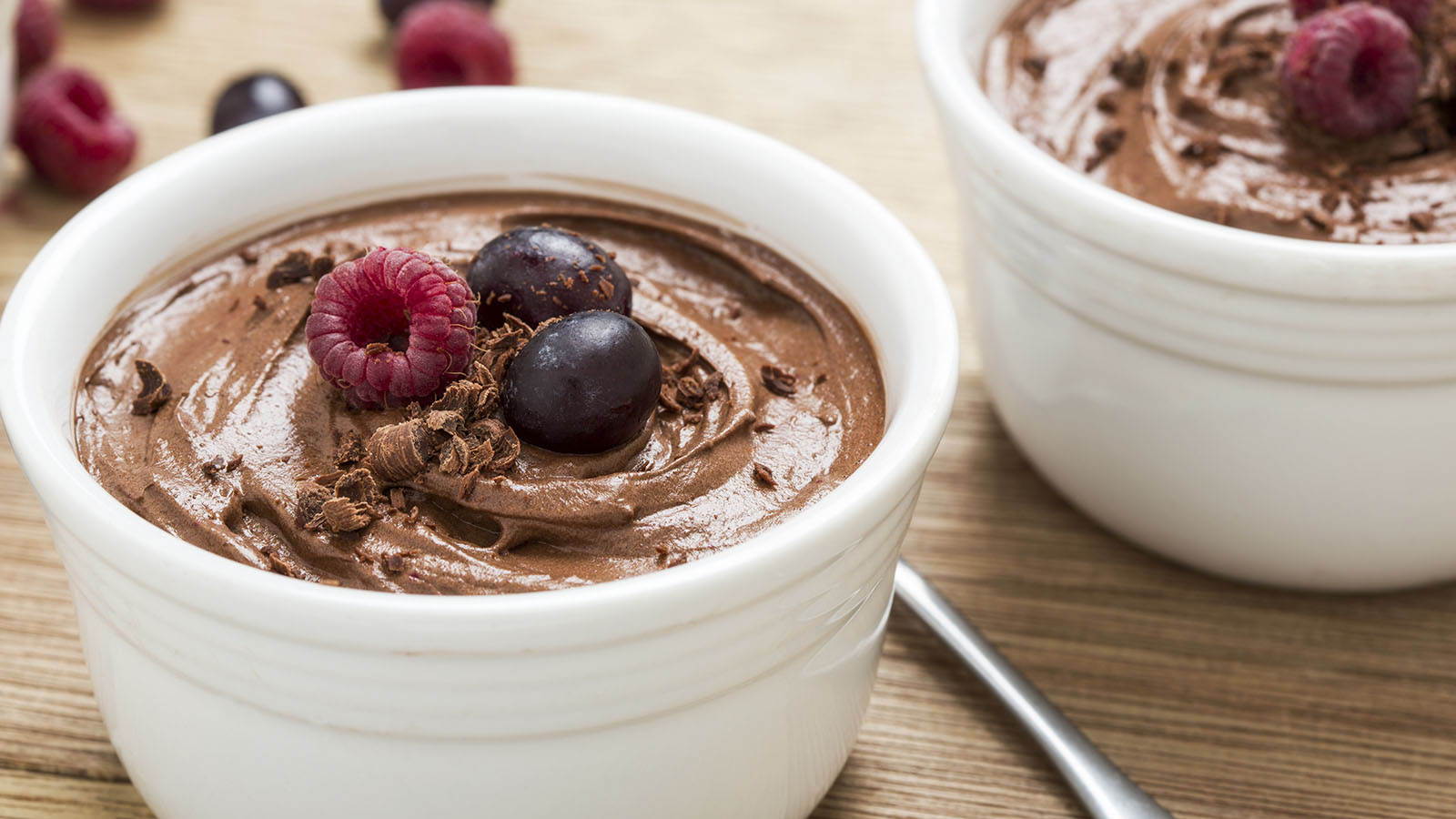Can Your Gut Health Affect Your Heart?
A complex interplay between the bacteria that live in our intestines and the systems in our body can influence our risk for serious illnesses, including cardiovascular disease. Here's how to stay on track.

By Troy Randle, DO, FACC, Cardiologist, Virtua Cardiology
Trust your gut. Follow your heart. As it turns out, you can do both at once: The health of your cardiovascular and digestive systems appears to be linked.
Why? One hundred trillion bacteria, from at least several hundred species, inhabit your gastrointestinal (GI) tract. Many of these microbes are good for you. They help you digest food, metabolize drugs, and protect you from infection.
There’s a complex interplay between the bacteria that live in our intestines, called the microbiome, and the systems in our body. The type of bacteria in our GI tracts, as well as the substances they produce, can influence our risk for serious illnesses, including cardiovascular disease.
The Impact of Imbalance
For years, we have suspected a connection between gut health and heart health. Recent research adds evidence, finding that changes in certain types of gut bacteria are associated with:
- High blood pressure
- Heart disease
- Heart failure
- Lower levels of HDL or “good” cholesterol
- Events like heart attacks and strokes
Recently, scientists identified a compound that gut bacteria produced when you eat animal foods like red meat and eggs. Having large amounts of this substance in our blood may increase inflammation and the buildup of plaque in our arteries, which can lead to atherosclerosis.
7 Daily Steps to Maintain Gut Health
The microbiome is one of the hottest trends in medical research. Scientists are studying microbe populations to improve your health. In the meantime:
- Approach antibiotics with caution. Medications that treat infections can also kill off healthy bugs and lead to serious intestinal problems, like inflammation of the colon and diarrhea. Take them only when needed and follow directions exactly. Never quit early, save them for later, or share with others.
- Take or eat probiotics. Yogurt, kefir, kimchi, and supplements can help increase the amount of good bacteria in your gut.
- Fill up on fiber. A diet rich in a wide range of nutritious foods keeps your microbes happy. Short-chain fatty acids—which are produced when gut bacteria digest fiber—may help reduce the risk of heart disease, type 2 diabetes, and other conditions. Fiber from plant foods is especially helpful. Boost your intake by adding beans to your diet and swapping refined foods like white rice for whole grains, such as brown rice and oatmeal.
- Drink plenty of water. Limit stimulants like alcohol and caffeine, which can disrupt the digestive process.
- Manage stress. Yoga, meditation, and taking breaks from work can reduce episodes of upset stomach and diarrhea, as well as lower your blood pressure.
- Exercise. Physical activity aids digestion and is good for your overall health.
- Practice hand hygiene. Washing your hands regularly with soap and water keeps harmful organisms away.
You really are what you eat. Make diet and digestive health part of your conversation with your health care provider.
Get Your Digestive System Back on Track
Virtua GI and Digestive Health’s more than 50 gastroenterologists provide comprehensive treatments for the issues affecting your gut. Click here to make an appointment.
There's So Much More to Explore
Discover expert insights, inspiring stories, health tips, and more by exploring the content below!

HeartTalk Magazine
Is an At-Home Colon Cancer Test a Good Alternative to a Colonoscopy?

How Do You Manage the Side Effects of Weight-Loss Medications?
A Woman’s Four-Step Guide to Fight Back on Back Pain

What You Need To Know About Carpal Tunnel Syndrome

The Truth About Menopause, Weight Gain, and Belly Fat

Shedding Light on Lesser-Known Menopause Symptoms and Solutions

Debunking The Myths About Vaginal Dryness
Inside Look at Blood Vessels Aids PAD Treatment
Denise Davis: Pay Attention to Your Heart Health

What You Need To Know About Stroke Treatment

10 Smart Ways to Manage Your Diabetes

Signs You May Have Chronic Kidney Disease

5 Essential Winter Foot Care Tips When You Have Diabetes

Sweet Music: Trust, Teamwork Save Justin from Heart Attack

Complex Heart Surgery Nets James a Lifelong Friend

Hepatitis C Kidney Transplant a Blessing For Lee Manns

7 Reasons Why You Want Your Surgeon to Be an Expert in Robotics

Colitis Symptoms Under Control, Jennifer Is ‘Living My Best Life’

How Do I Care for a Wound that Won't Heal?

8 Key Steps to Better Blood Pressure Control

Five Back Pain Risk Factors That You Should Know

Is My Back Pain Normal, or Is It Spinal Stenosis?

Gut-Healthy Recipe: Turmeric Chicken With Asparagus

Gut Health Recipe: Chipotle Salmon and Sweet Potato Bowl

Robotic Hernia Surgery Combines Innovative Techniques With Faster Recovery Times

How Does Breast Density Affect Your Mammogram?

Menopause: New Insights Into the Power of Hormone Replacement Therapy
Signs You Should Get Treated For Vein Problems

One New Heart Valve Saves Two Lives in the Tritten Family
What You Need to Know About Heart Failure

6 Numbers Key to Keeping Your Heart Healthy
Lung Valve Surgery Relieves COPD, Emphysema Symptoms

Lung Screening, Robotic Technologies Get Pat Kicking Up Her Boots Again

Breast Cancer Diagnosis Inspires Catherine to Help Others

Jasmine’s On-Air and Pain-Free After Gallbladder Surgery

When Should I See a Doctor About My Knee Pain?

Quick Action Leads to Jesse's Recovery From Stroke

A Non-Athlete’s Guide to Shoulder Overuse Injuries
Shoulder problems aren’t limited to athletes. Virtua orthopedic surgeon Sean McMillan, DO, explains shoulder overuse injuries and prevention in this article.

A Non-Athlete’s Guide to Shoulder Overuse Injuries

Wide-Awake Hand Surgery Speeds Recovery, Puts Control in Patients' Hands

South Jersey Veteran Thrives After Cross-Country Kidney Donation

Five Mindfulness Tips That Can Help Heal Your Heart

3 Ways to Avoid Knee Pain

When Should I See a Doctor for My Hip Pain?

When Should I See a Doctor About My Shoulder Pain?

Is My Back Pain Normal, or Is It Sciatica?

Is My Back Pain Normal, or Is It a Herniated Disk?

When Is It Back Pain, and When Is It Something More?

Watchman Heart Device: a Technological Breakthrough for Blood Clot Prevention

Albert's Emergency Cardiac Surgery Is a 'Story of a Lifetime'

What Can I Do Right Now About My Aching Back?

How Do I Get Rid of This Back Pain for Good?

Love Your Heart: Essential Care Tips for Every Stage of Life

How Do I Measure My Blood Pressure at Home?

How Do I Improve My Cholesterol Levels?

3 Ways to Reduce Your Stroke Risk

How the Unique Stages of a Womans Heart Affect Her Health

Can Your Gut Health Affect Your Heart?

When Should I Be Worried About My Neck Pain?
Advanced Heart Failure Therapies Get Bernadine Back to Full Speed

Sarah Wins Back Her Health After Crohn's Disease Diagnosis

Overcoming Addiction, Philip Now Sees More Positive Side to Life

Gut-Health Recipe: Shrimp and Vegetable Stir Fry

Gut-Health Recipe: Berry Yogurt Parfait

Gut-Health Recipe: Avocado and Black Bean Salad
Firefighter's Successful Lung Cancer Care at Virtua
A Lung Screening Put Teresa Back in the Race

A Breast Self-Exam Saved Kristen's Life

Early Treatment is Best to Relieve Hemorrhoid Symptoms

The Top 10 Foods For A Healthy Diabetes Diet

Keeping the Beat: Advanced Heart Surgery for Aortic Aneurysm

Heart-Healthy Summer Recipe: Hummus and Veggies

4 Delicious Heart-Healthy Recipes Perfect for Summer

Heart Healthy Summer Recipe: Dessert Parfait

Heart-Healthy Summer Recipe: Pear and Walnut Salad

Heart-Healthy Summer Recipe: Terrific Turkey Burgers

Are You At Risk For Chronic Kidney Disease
Atrial Fibrillation and Stroke: What's the Connection?
Heart Tests Your Doctor May Order

Local Pastor Makes Kidney Health Mission of Ministry
Managing Pregnancy for Mothers With Heart Conditions

Heart Healthy Recipe: Basil Pesto Pasta With Seared Vegetables

Heart Healthy Recipe Chocolate Avocado Chia Pudding
Keep Your Heart Rhythm in Check With Your Smartwatch
Mind Your Meds for Blood Pressure Risks
Magic Pill for Heart Health? Cut 300 Calories a Day
3 Smart Ways to Boost Your Heart Health
3 Best Exercises For Heart Health

Get Your Heart Pumping With These 25 Workout Songs
Your Chest Pain: Heartburn, Heart Attack, or Something Else?
3 Heart Healthy Recipes to Win Valentines Day
How Work and Home Stress Can Affect You
Why Improving Your Health Is Going To The Dogs And Cats
Why Younger Women Need Start NOW To Safeguard Their Hearts From Heart Attacks
Can You Die of a Broken Heart?
What’s the Difference Between Type 1 and Type 2 Diabetes?
Get to the Bottom of Blood Pressure Numbers
Mitral Valve Surgery Opens Doors for Improved Quality of Life
6 Healthy Habits to Start in Your 20s for Better Lifelong Health
Do You Have a Fatty Heart?
Get Pumped! Assist Devices Can Improve Heart Failure Symptoms
A Cardiologists Advice on Heart-saving Emergency Cardiac Care
Virtua Doctor’s Experience Is a Warning for All About COVID-19 and Strokes
You May Feel Fine, but Gregory Says "Don't Skip Your Medical Care"
In Sickness and in Health: Couples Often Share Heart Disease Risk
"Reduce Your Heart Disease Risk With a Plant-based Diet"
Hybrid Robotic Heart Surgery and Valve Replacement Restores Quality of Life
Can Marijuana Hurt Your Heart Health?
6 Tips for Restoring Your Heart Rhythm
Eat Smart for Your Heart
Cardiac Rehab: Strengthening Your Heart After Leaving the Hospital
Your Heart Needs A Good Nights Sleep
Are You at Risk for AAA—the Silent Killer?
The Cardio Oncology Team Protects Your Heart During Cancer Treatment
Get Relief From Painful Varicose Veins This Summer
Exercise Your Way to a Stronger Heart
Fish Oil: A Good Catch or a Scam?
My Heart Seems to Skip a Beat - Should I Be Worried?
Menu Planning? Try These 5 Heart-smart Substitutions

5 Health Risks Tied to Weight

Heart-Healthy Recipe: Maple Orange Salmon With Mango Salsa
Do Not Wait to Get Help When a Stroke or Heart Attack Strikes
4 Reasons Why Heart Patients Should Follow COVID 19 Safety Guidelines

Exercise Yourself Off of Blood Pressure Medication
Young Mother Finds Support for Anxiety After Rare Cardiac Event
Is Your Heart Age Older Than You?
Heart Healthy Recipe: Mediterranean Shrimp Salad

All for Bear: Dan Loses Weight to Be His Son’s Kidney Donor

Augmented-Reality Surgery Has Bobby Back on Stage, Rocking His New Hip

Hyperbaric Wound Therapy Puts Joette Back in Motion

Robotic Hernia Repair Renews David's Active Lifestyle

